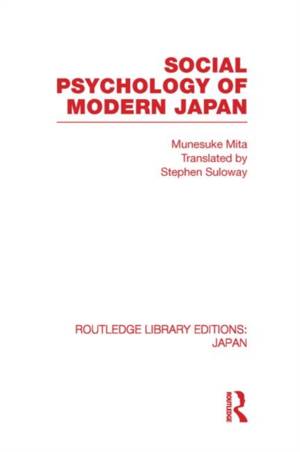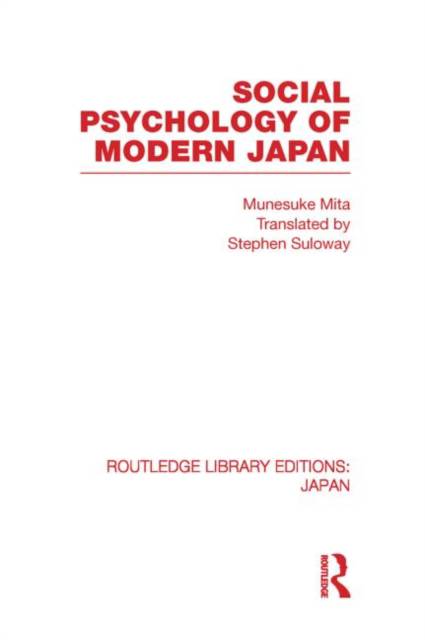
- Retrait gratuit dans votre magasin Club
- 7.000.000 titres dans notre catalogue
- Payer en toute sécurité
- Toujours un magasin près de chez vous
- Retrait gratuit dans votre magasin Club
- 7.000.0000 titres dans notre catalogue
- Payer en toute sécurité
- Toujours un magasin près de chez vous
Description
This study reveals the complex combination of cultural particularity and modern universality that underlies the reality of contemporary Japan. The work uses sources such as popular works of art, song, best-selling books and the advice columns of newspapers to draw a striking portrait of the Japanese public. Focussing on the four main phases of modernizing and modernized Japan beginning in the nineteenth century and continuing to today's postmodern society, this groundbreaking work uses quantitative and qualitative data to show that the processes of modernization brought a coexistence of generational variation imbued with tensions, conflicts and synergies, that, taken together, provide the key to understanding the structure and dynamism of contemporary Japan.
Spécifications
Parties prenantes
- Auteur(s) :
- Editeur:
Contenu
- Nombre de pages :
- 560
- Langue:
- Anglais
- Collection :
Caractéristiques
- EAN:
- 9780415850759
- Date de parution :
- 25-04-13
- Format:
- Livre broché
- Format numérique:
- Trade paperback (VS)
- Dimensions :
- 156 mm x 234 mm
- Poids :
- 775 g

Les avis
Nous publions uniquement les avis qui respectent les conditions requises. Consultez nos conditions pour les avis.






